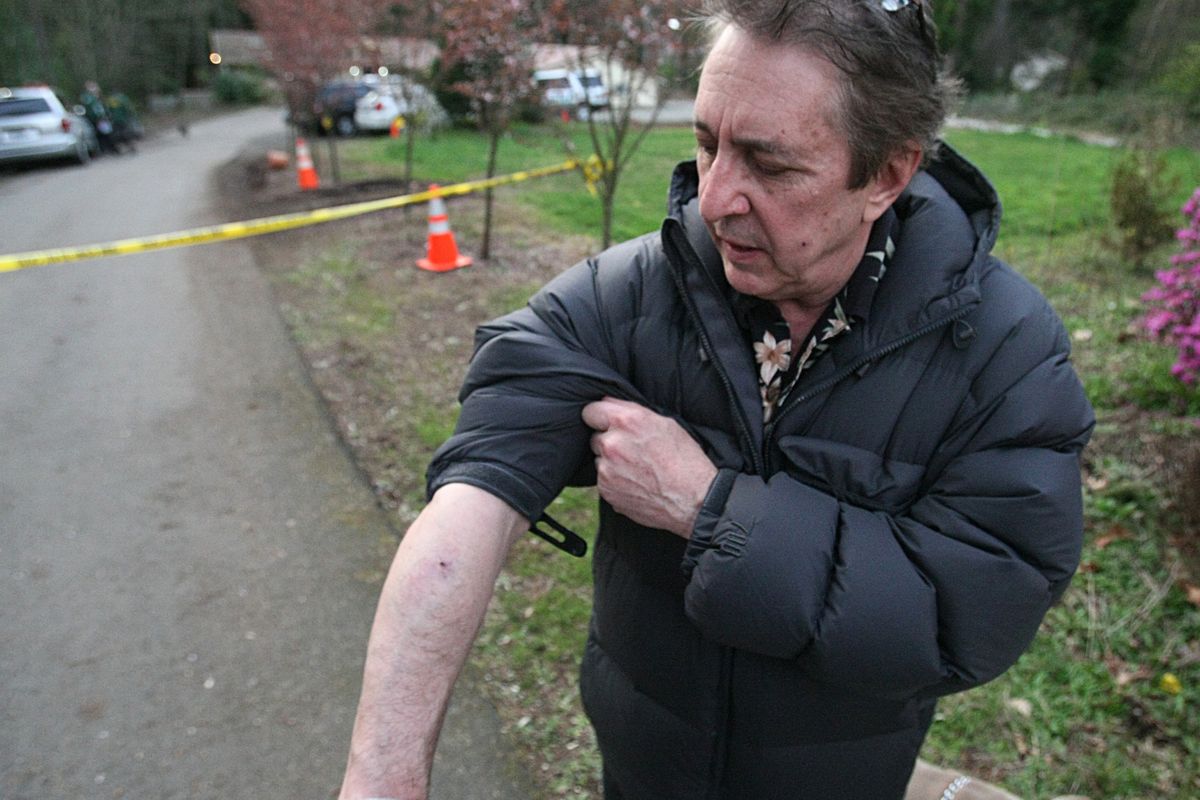385 plants at Wash. pot activist’s burgled home

SEATTLE — Sheriff’s deputies said they found 385 marijuana plants at the home of an outspoken medical marijuana activist who nearly killed a robber in a shootout this week. It’s not clear whether the man will face charges, even though he far exceeded the state’s presumptive 15-plant limit.
Sgt. John Urquhart, a King County sheriff’s office spokesman, said Tuesday that investigators also found marijuana products such as butter, baked goods and paraphernalia at the home of Steve Sarich, who uses pot for back pain and runs an organization called CannaCare.
Sarich, 59, awoke early Monday to find intruders in his home. He shot one, sending him to the hospital in critical condition, and suffered shotgun pellet wounds to his face and arm when another intruder returned fire. Four young men and a teenage boy are in custody.
Deputies left Sarich 48 ounces of dried bud and 30 plants for him and his girlfriend but seized everything else, Urquhart said. They had no plans to arrest him but said they would forward their findings to prosecutors.
“No, we’re not going to arrest the guy — he just got shot,” Urquhart said.
Nevertheless, Sarich said he was steamed about having the plants, computers and other items seized, and his home trashed by investigators who dumped dirt from pots onto the floors. He insisted CannaCare’s operation is legal and many of the plants would be provided to other marijuana patients.
Sarich vowed to sue the sheriff’s office.
“If I’m not safe, no patient is safe. It’s not like nobody knows what I do,” he said.
The case highlights the confusion of Washington’s medical marijuana law. Approved by voters in 1998, it says patients can use marijuana for certain conditions if they have a doctor’s authorization. But the state created no dispensary system for obtaining the drug.
It requires patients to grow marijuana themselves or have a caregiver grow plants for them — but doesn’t explain where the patients are supposed to get the seeds or plants. Under state rules, patients are presumed to need up to 15 plants in any stage of growth and 24 ounces of dried bud, but they can have more if they demonstrate need.
Furthermore, designated caregivers can only provide marijuana to one other patient at any time — a provision that could get Sarich in trouble. But the law doesn’t specifically prohibit patients from growing their marijuana together in one location to save money on lights or other expensive equipment.
CannaCare has 7,000 members in the state, Sarich said. It helps patients with legal advice, runs clinics where patients can meet with doctors who authorize marijuana use, provides patients with marijuana clones or starter plants and delivers about 50 patients a week with usable marijuana, he said.
Three years ago, Sarich’s Everett home was raided by state law enforcement officials who seized more than 1,000 plants. The case was referred to the U.S. attorney’s office but no charges were filed.
King County Prosecutor Dan Satterberg has repeatedly said he’s not interested in bringing sick people to court on marijuana charges if they’re trying to comply with the law. And he has repeatedly refused to prosecute people who were involved in cooperative growing operations, even those that numbered up to 200 plants.
Aaron Pelley, Sarich’s attorney, did not immediately return a call seeking comment.
State Sen. Jeanne Kohl-Welles, D-Seattle, has worked with Sarich in the past on medical marijuana issues and said she was surprised to hear how many plants he had.
Violence at medical marijuana growing sites shows the need for the Legislature to create a system that provides patients with safe access to marijuana, she said.
“We have a gap in our law and that needs to be dealt with,” Kohl-Welles said.